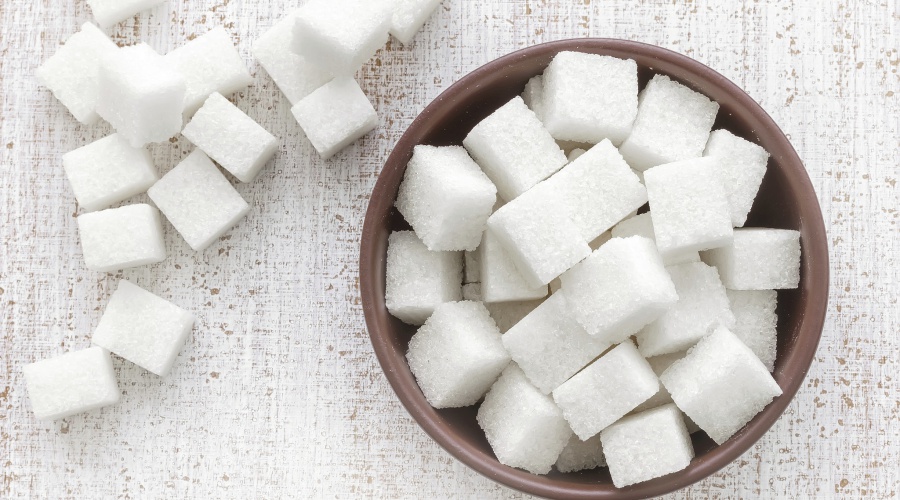Look on virtually any store shelf at your local grocery store, and you’ll see our love affair with sugar. Products you never thought would contain sugar are chock-full of the stuff. You might not even see “sugar” in the ingredient list, but it’s there!
Agave nectar, barley malt, blackstrap molasses, brown rice syrup, cane juice, and the list goes on and on… all sugar and much of it high on the glycemic index, which is a measure of a food’s effect on your blood sugar.
We crave sugar because it’s a carbohydrate that gives our body energy. Unfortunately, most Americans don’t exercise enough to put those carbohydrates to work fueling our bodies.
Almost all scientific data recommends that we lower our average daily intake of sugar, but most of us fail to do so. Perhaps a look into your body and what happens to it when you eat sugar will help you understand why nutritionists recommend you put down that chocolate chip muffin.
Dopamine. And It Feels So Good
Whenever you eat something sweet, your brain releases a neurotransmitter called dopamine, which makes you feel happy. Eaten too frequently, sugar can desensitize this brain chemical and make it more difficult to feel satisfied after eating a sugary treat. Eventually, you need more and more sugar just to get the same effect.
In the last few years, the scientific community has jumped on the idea that sugar is just as addictive as drugs like heroin and cocaine. Although those claims probably feature some hyperbole, those sentiments don’t seem so incredible once you learn what happens to sugar in your body.
When You Eat Sugar
Your body is designed to process sugar and turn it into energy by breaking it down into glucose or fructose. When you eat sugar in small doses, your pancreas releases insulin that grabs the glucose in your blood and feeds it to your cells for energy. Meanwhile, your liver handles the fructose by metabolizing it for use in your body.
Unfortunately, the amount of sugar in a candy bar or carbonated soft drink overloads your pancreas, which panics and secrets too much insulin. Sensing something is wrong in your body, your brain will release serotonin, which is supposed to help you sleep. That burst of serotonin is why you feel lethargic after eating sugar.
Further, when too much fructose floods your liver, it can’t keep up, and all sorts of terrible things start to happen. You’ll see a reduction of good cholesterol and the formation of fat globules in the liver. Your arteries fill with fat that hardens and elevates your risk of heart attack and stroke.
Avoid Added Sugar
The American Heart Association recommends keeping added sugar to 37.5 grams a day if you’re a man or 25 grams a day if you’re a woman. When you consider that a small vanilla latte from Starbucks has 27 grams of sugar, you’ll begin to realize that eating less sugar is no easy task.
However, now that you know what happens to sugar in your body when you eat too much, perhaps you’ll find the willpower to say no to that Snickers bar at lunch and to politely decline that can of soda.




